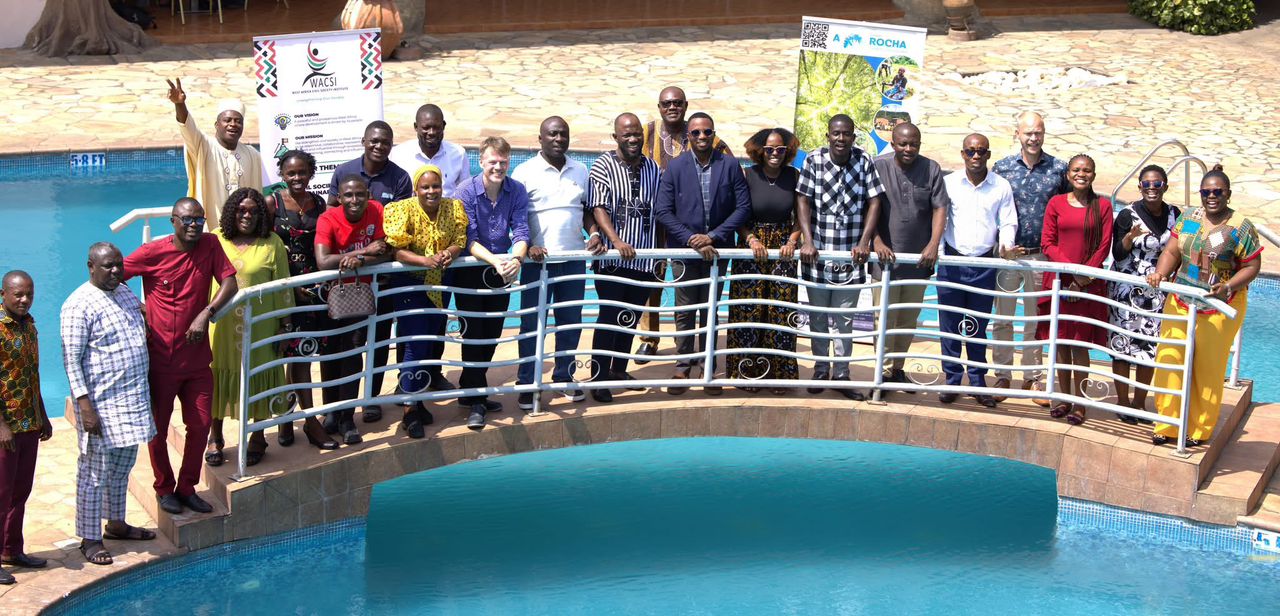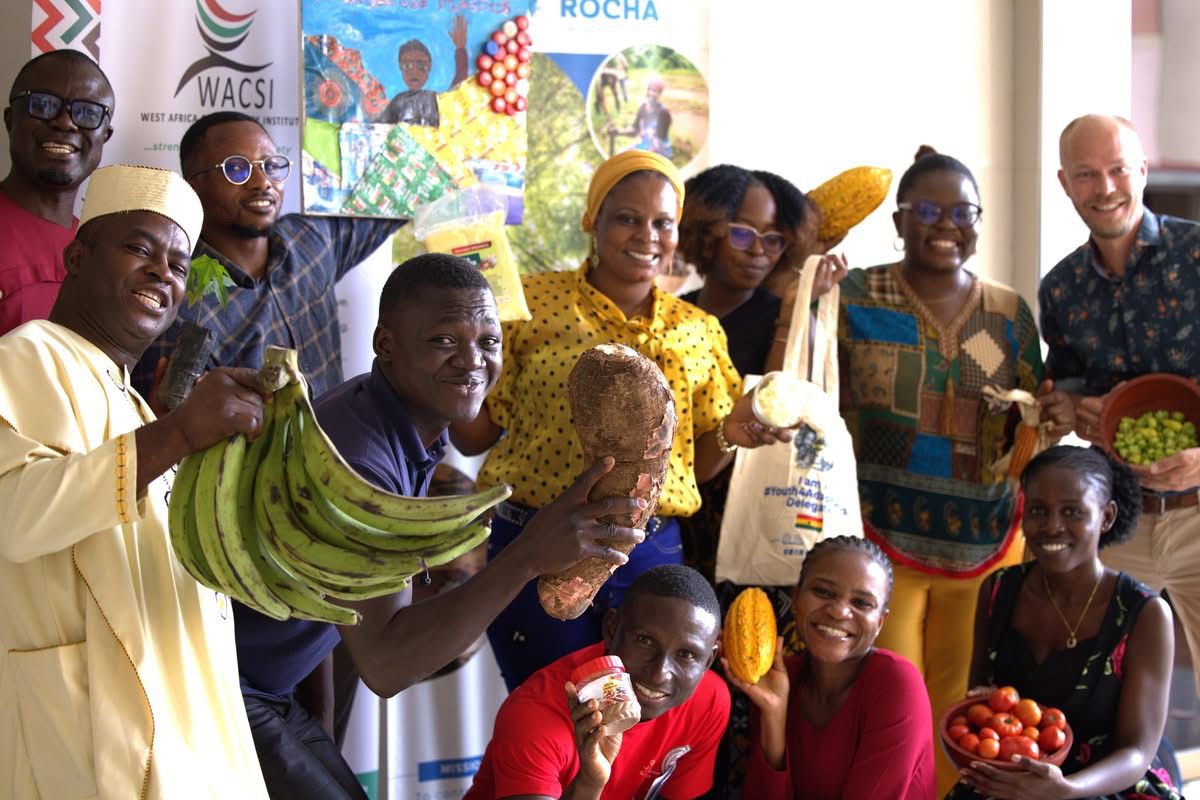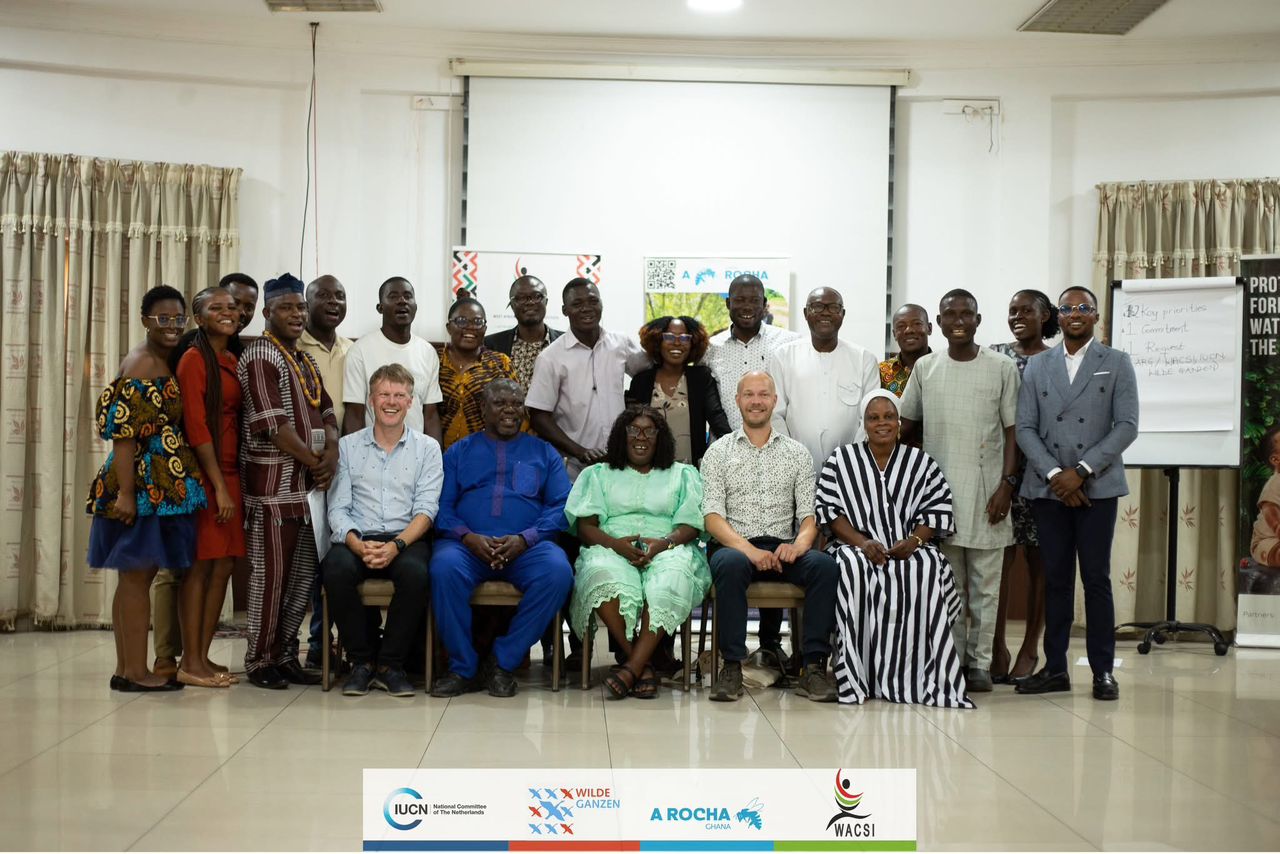Climate Change & Energy
Roots of Change: Strengthen the Roots Project Ends with Lasting Impact
Source: Ghenvironment.com - September 11, 2025

Participants at the closing ceremony of the StR Project in Accra
The Strengthen the Roots Project (StR), which aimed to empower Community-Based Organisations (CBOs) and Non-Governmental Organisations (NGOs) against environmental challenges in Ghana, has come to an end.
Apart from strengthening CBOs and NGOs, the project also facilitated the empowerment of local communities living in or around threatened natural resource areas, enabling them to mobilize local support for their work.
The three-year initiative (2023–2025) was funded by The Dutch National Postcode Lottery and coordinated by IUCN NL alongside Wilde Ganzen. In Ghana, the implementation partners included A Rocha Ghana (ARG) and the West African Civil Society Institute (WACSI).
The project's two-day closing ceremony adopted the theme "From Seeds to Roots – What We Have Grown." The event brought together all stakeholders, including coordinating organizations (International Union for Conservation of Nature Netherlands (IUCN-NL) and Wilde Ganzen), and implementing partners (A Rocha Ghana and West African Civil Society Institute (WACSI)), including the eight participating Community-Based Organizations (CBOs) and Non-Governmental Organizations (NGOs).
Speaking at the closing ceremony in Accra, the Director of A Rocha Ghana, Dr Seth Appiah-Kubi, commended the CBOs and NGOs for a successful project.
He said the StR Project did not just leave behind reports and numbers but fostered a spirit of growth where seeds of change were planted in communities, resilience where communities stood tall, and fierce passion from voices that refused to be silenced in shaping their futures.
He said that, as part of the project, there was also collaboration where partners worked hand in hand, and hope that symbolized sustainability.
Dr Appiah-Kubi was hopeful that the beneficiary CBOs and NGOs would use the experience they had gathered during the project’s implementation to enhance the efficiency and effectiveness of their organizations.
On his part, Sander Otten of Wilde Ganzen from the Netherlands noted that there were many things to celebrate as part of the project, including increased visibility of participating organizations.
“Organizations became more visible, both within their communities and among national stakeholders. Their voices were heard in debates that mattered. As an example, we saw collaboration among organizations from StR, and specific projects with The Env Report, or around important moments such as World Environment Day,” he said.
He also mentioned the joint action on galamsey, where several organizations under the StR united to address the pressing issue of illegal gold mining, a significant problem in Ghana.
He said that concrete advocacy results, community ownership and motivation, skills in communication, and peer learning and linking were among the achievements celebrated under the project.
He said there was a strong basis to continue the work, with ARG at the level of a robust NGO, alongside the CSOs from StR and other actors that might join in the future.
“One of the elements I was particularly hopeful about was the Match Funding made available. The idea was not only to provide additional resources but also to serve as an incentive for you to raise funds locally and regionally. By doing so, your projects would be rooted even more firmly in the support of your own communities. And once that support was mobilized, the matching contribution could then give your initiatives the extra boost needed to make a tangible impact – and to strengthen the trust and confidence of the people you serve,” he said.
He expressed the hope that, as local organizations, they would continue to find each other. “That the connections built during Strengthen the Roots will not fade away, but will grow stronger. Imagine the impact if these eight organizations from different parts of Ghana, each powerful on its own, could continue to join forces in their advocacy and make their concerns and solutions heard at the national level,” he added.
Presenting the outcome of a survey conducted about the StR project, Sheena Dorcoo, the Sustainability Policy and Action Officer at A Rocha Ghana, noted that all eight organizations had built significant capacity in local fundraising, community mobilization, media, collaborations, and partnerships, though with varying levels of success.

Produce from various landscapes by the beneficiaries of the StR Project
“All organizations reported increased visibility and legitimacy, signaling that StR had strengthened their external positioning. Partners built strategic alliances at the local, national, and international levels,” she observed.
About the Strengthen the Roots Project
The Strengthen the Roots Project (StR) was a three-year conservation initiative in Ghana, alongside Bolivia and Indonesia, that focused on protecting threatened ecosystems across four key regions: The Atewa Landscape, Mole, Western, and Volta/Oti. Beyond ecosystem conservation, the project also worked to influence national-level environmental policy.
The eight participating organizations are the Concerned Citizens of Atewa Landscape (CCAL), Facilitating Learning of Women in Emerging Regions (FLOWER), Social Initiative for Learning Development Program (SILDEP), and Coalition for Development of Northern Ghana (North Code).
The rest are The Environment Report, Ghana Youth Environmental Movement (GYEM), Ghana Environmental Advocacy Group (GEAG), and Youth Volunteers for the Environment Ghana (YVE-Ghana).
Ewurama Diana
September 12, 2025

 Produce from various landscapes by the beneficiaries of the StR Project
Produce from various landscapes by the beneficiaries of the StR Project

 Participants at the closing ceremony of the StR Project in Accra
Participants at the closing ceremony of the StR Project in Accra

 Produce from various landscapes by the beneficiaries of the StR Project
Produce from various landscapes by the beneficiaries of the StR Project
Ewurama Diana
September 12, 2025